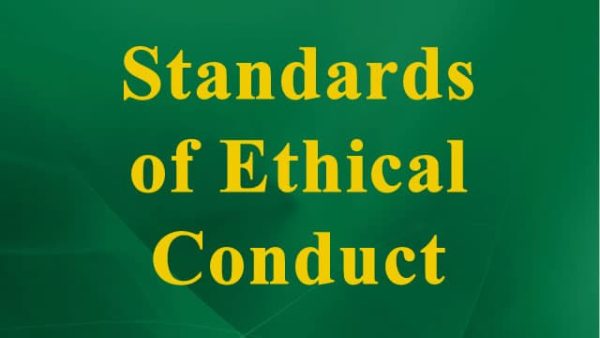University ethics extra: core standards

“Pursuit of the University of North Carolina at Charlotte mission of teaching, research and public service requires a shared commitment to the core values of the University as well as a commitment to ethical conduct in all University activities.”
The opening lines of UNC Charlotte’s standards of ethical conduct capture the defining spirit of what will follow. Encapsulated in University Policy 804 “Standards of Ethical Conduct” are the essential expectations for maintaining a legally sound and ethical work environment. Inside UNC Charlotte highlights some significant aspects of the policy below.
Respect for Others
The University prohibits discrimination and harassment based on any status protected by law or University policy and provides equal opportunities for all community members and applicants.
Compliance with Applicable Laws, Policies and Procedures
Many of the laws that apply to the University apply to other enterprises and the general population. However, there also are laws unique to public education and to certain areas within it. Employees are expected to become familiar with the policies and laws applicable to their area and to seek guidance from legal affairs if needed. Some employees are governed by discipline-specific ethical standards.
Conflicts of Interest or Commitment
Outside employment should not interfere with University duties. Professional activities, financial interests or receipt of benefits from outside parties can create conflicts or the appearance of conflicts. Employees should avoid these situations, and disclose any potential conflicts of interest that do arise.
Ethical Research Conduct
Those engaged in research are expected to pursue the advancement of knowledge while meeting the highest standards of honesty, accuracy and objectivity. This means protecting the rights of animal and human subjects and upholding the factual integrity of research findings. Chapter 300 covers the entirety of University research, intellectual property and information technology policy.
Confidentiality and Access to Records
The public right to information access and the individual’s right to privacy are governed by state and federal law, as well as by University policies and procedures. These are articulated in detail under Section 7 of Policy 804.
University Resources
University resources must be used solely for activities on behalf of the University. They may not be used for personal purposes except in limited circumstances where the personal use does not conflict with and is reasonable in relation to University duties. Examples of university resources include: cash, University facilities, University records and intellectual property rights. See Section 9 of Policy 804 for the full list.
Reporting Violations and Protection from Retaliation
Members of the University community are strongly encouraged to report suspected improper activity and will be protected from retaliation for making a good faith report.
This article is third in a series of features on the UNC Charlotte Office of Ethics and Compliance. For more on reporting and investigation, click here. Read Inside UNC Charlotte’s Q-and-A with Director of Compliance Susan Burgess here.